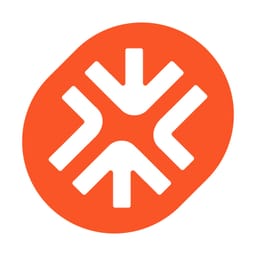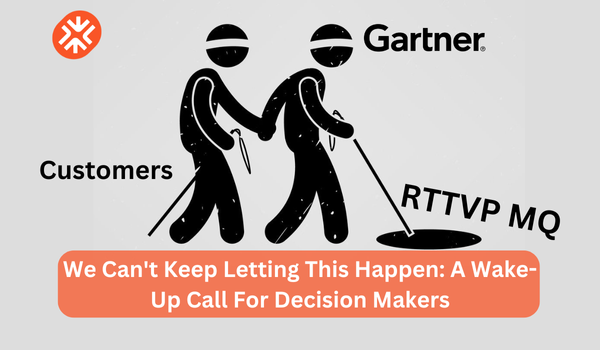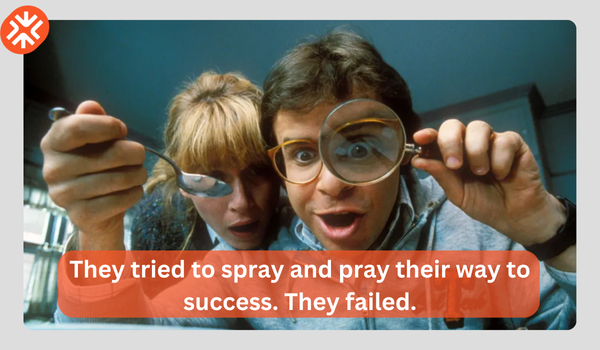Will AI finally end supply chains' love affair with Excel?
Did you have a Dave Clark redemption arc on your 2024 supply chain bingo board? Neither did I. With great funding comes great responsibility, will Auger live up to the hype?
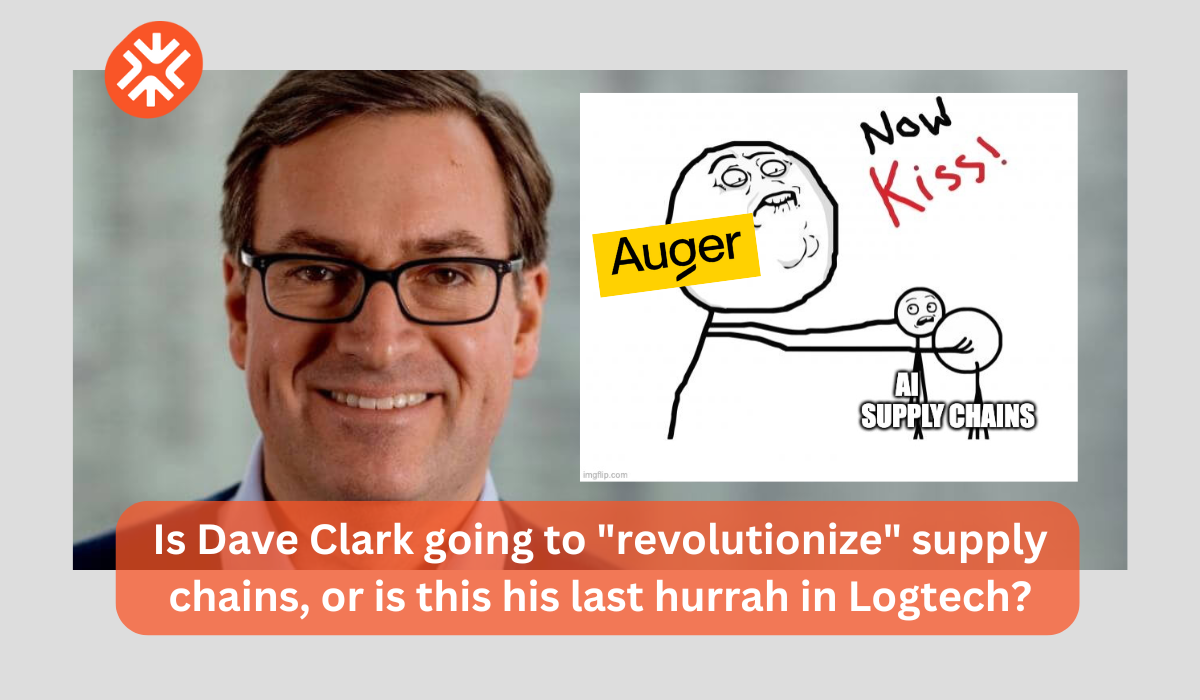
Another week, another logistics technology obsession. This week, it is Auger, the US$100mn start-up by Flexport scapegoat Dave Clark. I want to preface this one by saying that, as we do not actually know what Auger is yet, I actually remain cautiously optimistic and wish Dave and his future team much success. Why? Because frankly, if this fails, it'll join a long list of logistics technology failures that are gobbling-up investor money, without improving much of anything.
Sponsored by

"AI" = Revolutionize...?
We've already seen our fair share of "AI" solutions in logistics and supply chain technology. From the initial chatbots released during the first wave of ChatGPT hype, to the bastardisation of AI by claiming every OCR solution was "AI-enabled" or "AI-enhanced". All of this is good fun, but remains far from revolutionizing global supply chains.


So what makes Dave Clark and Auger any different?
Is it the team? Well, so far it appears to be a team of one, although that can and will move quickly with $100mn USD in the bank and "AI" plastered all over the company's website and announcements. Will any of Dave's past Flexport rejects join him at Auger? Maybe.
Getting the band back together 🎶
After this weekend's SpaceX display, Tim Collins, now at BLUE ORIGIN, may look to join Auger 🚀 as Dave's Head of Operations. That one is probably a long shot, as AI is definitely less exciting than space travel. My money is on AJ Wilhoit and Kelly Cheeseman being two of the first to join the Auger ship. The former is at Project44, where the prospects of a big exit are gone, funding limited, and the potential of truly impacting the industry close to naught. The latter hasn't announced a new role since departing Flexport, and has been avidly reposting all Auger related announcements like a proud parent who's baby has taken its first steps.
Just in case you forgot to witness history!
If Dave Clark does get the dream team back together, it'll be an opportunity to prove that they can turn funding into a successful outcome, albeit this time with $100mn rather than the $935mn Series E round they had to play with at Flexport 🫣. According to Ryan Petersen, they didn't spend that well at all... But maybe that was Ryan's goal all along?
What is Auger and why do they think we need it?
"A tool or device used for boring holes (as in wood, soil, or ice) or moving loose material (such as snow)". Not to be confused with "Ogre", which is a cruel or terrifying person, and what Dave Clark was likely called by the Flexport staff he "allegedly" fired a month after telling them that there would be no layoffs. Sounds like the kind of founder every early employee wants to be in the trenches working with.

Jokes aside, the question remains: what is Auger?
He wanted to build a platform where companies could manage their supply chain with the “same level of simplicity and intuitiveness as the consumer applications that they use every day.” - CNBC
Consumer applications are great, for ordering take out or getting an Uber. But deeper consumer apps for things like banking, healthcare, and even LinkedIn or Reddit are all but fun to use. With supply chain being at least as complex as a social media network 🫣 , I'm not sure aiming for simple and intuitive front-ends is the answer. We've seen the likes of GoFreight choose this path before, only to forget to build actual useable functionality in the process (this comment doesn't come out of thin air, it was in a Friday Eric Johnson live on LinkedIn a while back by a forwarder who tried their solution - I just can't find the link, apologies!).
I do not feel like logistics and supply chain solutions need to focus on the simplicity of "consumer" experience. These are professionals that we are talking about, and not just any professionals, but supply chain and logistics experts. Sure, Flexport's rebound CEO Ryan Petersen may think that freight forwarders are incompetent, but that is the opinion of a man who failed to build anything of note with US$2bn. The least he could do is show some respect to those who have built the industry that made him wealthy.
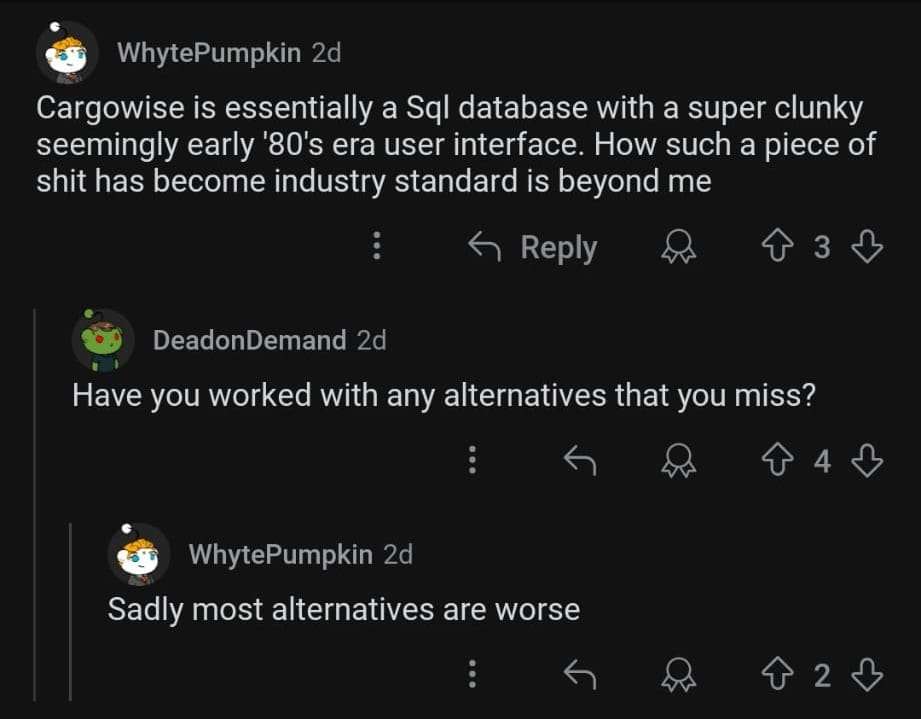
Industry-leading solutions like CargoWise have awful UX and a UI that belongs in Windows 98. Their success is based on what they actually deliver outcomes-wise to their customers, rather than how snazzy the front-end looks. That being said, of course times are changing, but I do not think that change is putting as much of an emphasis on the front-end as Auger would like to have us believe. If anything, I believe that the idea is to do away with front-end interactions, as much as possible.
Revolutionizing global supply chains with an AI-powered OS unifying data for seamless, real-time insights, and powerful automation. - Auger.com
Many companies are stuck with “Franken-software”—patched-together solutions that fail to communicate effectively. - Auger.com
I see where this is going.
And I kind of like it. But can Auger really pull it off?
The "Franken-software" reality, kind of.
Dave is not wrong when he talks about Franken-software in supply chains. This reality gave birth to solutions like youredi, chain io, and more recently, Catena Clearing. They all attempt to connect the dots in their own way and to provide value. Are they any good? Depends on who you ask. Do they solve a problem? Kind of. Is it enough? Gosh no.
The problem with being a connector is that the nodes you connect today may not be here or relevant tomorrow. Whatever way we look at it, logistics technology is a rather niche space, with the majority of a logistics software provider's ICP blissfully unaware of this newsletter, of the existence of anything other than their existing technology (or lack thereof), and with a distrust of anything "AI" related.
All that being said, Franken-software is just part of the picture. There are a number of BCOs using the likes of SAP and Oracle. I'd like to add "with great success", but frankly, most of what I've heard about their supply chain offerings has been lukewarm, with some extreme cases of negativity thrown into the mix.
Which leads me to ponder: why does it feel like Dave Clark may be building an ERP with AI, when we already have multiple ERPs with AI at home?

What will it take to build this?
Define "this"?
Here's where things get a bit dicey in Auger's pitch (I'm going by what is available on the Auger.com website as of October 16th, 2024): first they call themselves an "AI-powered OS", and then they talk about "we integrate deeply with existing systems".
I highly doubt that they are creating a new operating system. That would mean a solution that handles a BCOs supply chain needs in their entirety. But then why integrate with deeply existing systems, when you would surely seek to replace them? I cannot imagine a company paying for a dozen systems + an ERP + Auger ERP, just to add another layer with a refined user experience and deep integration on top, can you?

If this is an OS, it'll take far more than US$100mn and Dave Clark's experience at Amazon to make this happen. You're looking at US$1bn at least, and a decade in the making. Pass.
I get the feeling that I may actually like what they start to announce in the near future. If my gut feeling is right, this feels like they are going to integrate everything, apply AI, automate your entire supply chain, identify exceptions, try to fix them with AI, and only then, if AI cannot fix things, a human will be notified. I'm a big advocate for automating everything and working from exceptions. Its the handling of those exceptions that make a true difference once fallout is tallied-up at the end of a disruptive event.
Here's the kicker though: where did Dave get the data to make this work, or has he not gotten that far yet? Does that mean that early POCs will need to agree to handing-over their data to train AugerAI and improve the solution for everyone? Many questions, few answers, plenty of intrigue.
The stage is set, Dave, over to you, show us what you're made of as a founder, we're eager to hear more.
Why are we overlooking the obvious?
I'm wrapping this one up here and will revisit once we have some more information and a few POCs to explore.
For now, I feel like Auger may have missed the obvious here.
Bad data in = bad data out.
Adding another layer onto an already busy and complex hodgepodge of tech and data really isn't going to help anybody. Especially when the core data continues to be awful.
Have you noticed how the likes of Project44 no longer communicate in "Zettabytes of data"? Nobody needs large data dumps anymore that require data analysts and Excel gurus to sort through and make sense of. The problems that supply chain stakeholders, be they BCOs or LSPs, face on a daily basis, come from bad fundamental processes, made worse by tech that assumes the data is good and everyone is doing wha they are supposed to along the way.
And now you want to throw AI into the mix? This is why I struggle with the current rhetoric around AI and pushing AI into everything from rates management to digital booking and visibility... We haven't even solved the fundamental issues through better data management and connectivity. We're effectively using AI to accelerate arriving to erroneous conclusions and bad outcomes thanks to low quality data. How can something sound both smart and stupid at the same time?
What can Auger do to get it done?
If Auger wants to find success here, they will need to start by focusing on the BCOs. From what Dave has said, they could technically go for the LSPs too, but those sales cycles are brutal, and everyone knows that forwarders have no appetite for expensive tech seen as a "novelty" thus far. This is all the more true after spending a decade or more using expensive Freight Management Systems or attempting costly self-builds.
BCOs need good tech, and Auger may be able to provide it. Forget tying dozens of solutions together and being a layer. If AI is as good as AI solution providers like to claim that it is, then there should be no difficulty in replacing entire existing systems with AI services running in the background, resulting in minimal front-end engagement. This should be the goal for AI: automate, execute, and only display the requested data, or warn about exceptions.
Solutions like Auger should not replace people, but improve their efficiency, allowing them to achieve greater outcomes, improving customer relationships, retention, and overall stakeholder satisfaction.
If Auger can do this, and truly change the life of every person working with supply chain ERP solutions today, they may just replace the Excel spreadsheet sometime soon. How about that?

Want more? Click the image below to access my LinkedIn profile and send me a connection request or follow for more content.
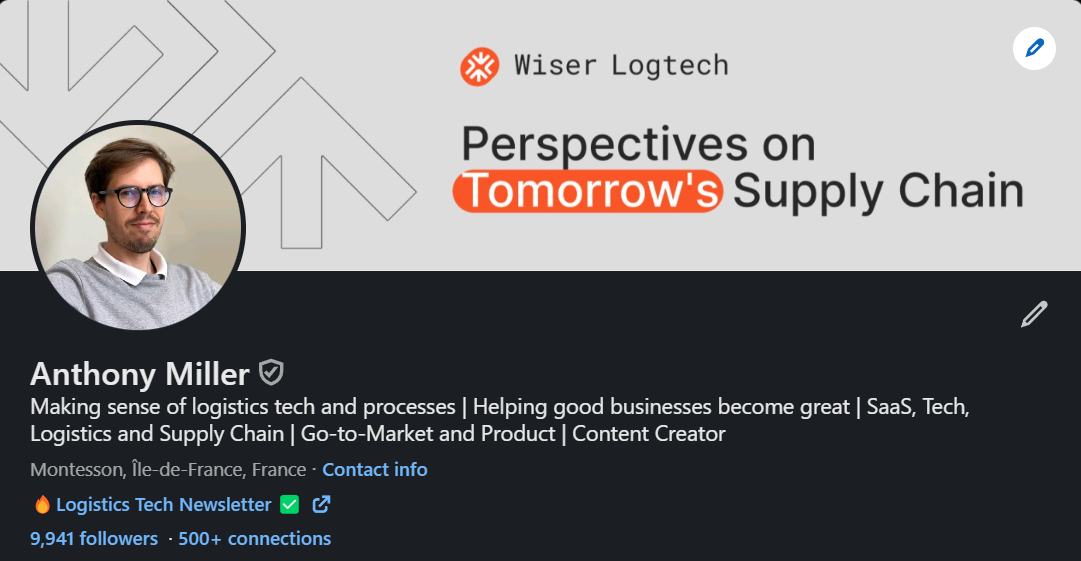
You'll find regular posts on LinkedIn, and can sign-up for the Wiser Logtech #Recap edition on LinkedIn by clicking the button below.
Subscribe on LinkedInThe #Recap edition is weekly or fortnightly, depending on how much is happening in the industry, and covers multiple topics in a short story format, along with key updates on tech, investment, M&A moves, and more.
Latest #Recap editions below:

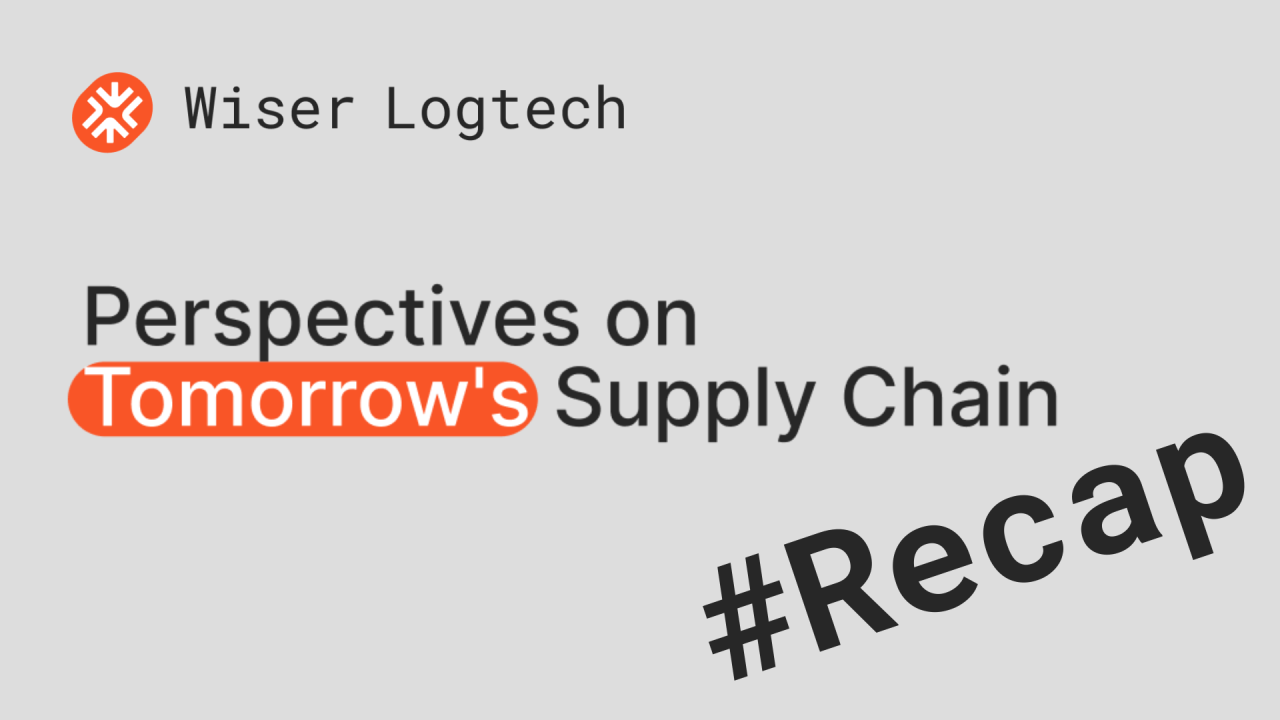
Thanks for reading, see you in a couple of weeks for the next one - and don't forget to get it done 💪 in the meantime.


